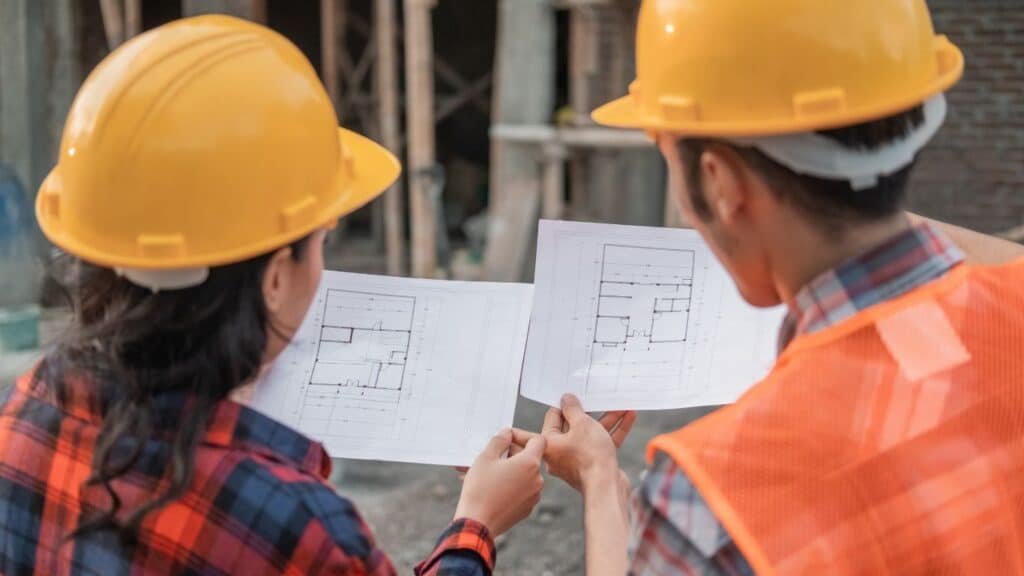In Florida, the construction industry is one of the most dynamic and crucial to the local economy. However, one aspect that often causes confusion among industry professionals is choosing the right type of construction license.
We have observed a large number of people confused about which type of contractor’s license to opt for, due to lack of knowledge about it.
This article seeks to provide clear information so that you, as a person interested in obtaining a license, know which one is best suited to your type of skill and experience.
Importance of Choosing the Right License
Choosing the right construction license is not only essential to comply with state laws and regulations, but it can also significantly impact your career. The right license ensures that you have the training and knowledge necessary to perform specific jobs safely and efficiently. In addition, it protects you legally and can increase your employment or contract opportunities.
Types of Construction Licenses in Florida
In Florida, there are several types of construction licenses, each designed for different specialties and experience levels.
General Contractor’s License
The general contractor’s license is one of the most common and allows professionals to manage and supervise construction projects involving structures of any type. This license is ideal for those with extensive experience in the industry and who wish to have the ability to manage large projects.
Subcontractor License
For those who prefer to focus on specific areas of construction, a subcontractor’s license is the right choice. This license allows professionals to specialize in specific tasks, such as plumbing, electrical or carpentry, working under the supervision of a general contractor.
Residential Contractor’s License
If you are interested in working in single-family or multi-family construction, the residential contractor’s license is what you need. This license allows you to perform and supervise residential construction projects, ensuring that you comply with all necessary codes and standards.
Specialty Contractor’s License
There are also licenses for contractors specializing in specific areas of construction, such as roofing, HVAC, and others. These licenses are ideal for those who have specific skills and knowledge and wish to focus on a particular niche of the construction market.
Requirements to Obtain Each Type of License
Each type of construction license in Florida has its own specific requirements, which may include work experience, education, and passing specific exams.
General Contractor’s License
To obtain this license, you generally need several years of experience in the construction industry, as well as passing state exams that test your knowledge of building codes, laws, and management skills.
Subcontractor License
Requirements for a subcontractor’s license typically include demonstration of skills in a specific area of construction, relevant work experience, and passing a specialized examination.
Residential Contractor’s License
Obtaining a residential contractor’s license may require specific experience in residential projects, as well as passing exams covering codes and regulations applicable to residential construction.
Specialty Contractor’s License
For specialty contractor licenses, it is necessary to demonstrate experience and skills in the specific area, along with passing an exam that tests your knowledge in that specialty.
Application and Licensing Process
The application process for any building license in Florida generally includes the submission of a formal application to the Florida Department of Business and Professional Regulation (DBPR), along with all required documentation.
- Completing the application: Be sure to complete all fields on the application and provide the necessary documentation, such as proof of work experience and education.
- Pay the appropriate fees: Fees vary by license type and may include application, examination and licensing fees.
- Pass the exam: Most licenses require passing one or more exams that will test your knowledge and skills.
- Wait for approval: Once you have submitted your application and passed the exams, you must wait for approval from the DBPR.
Cases in which a Construction License is Necessary
In Florida, a building license is required for a wide variety of construction work. This includes, but is not limited to, construction of new structures, renovation of existing buildings, plumbing and electrical work, and installation of HVAC systems. Failure to be properly licensed can result in severe fines and disruption of your projects.
Benefits of Having the Right License
Being properly licensed not only allows you to comply with state laws, but also gives you a competitive advantage in the marketplace. It gives you credibility and trust with clients, protects you legally, and gives you access to larger, higher-paying projects.
Common Mistakes when Choosing a License
One of the most common mistakes is not properly researching the specific requirements for each type of license. Another mistake is underestimating the importance of the practical experience and education needed to pass the exams and keep the license in good standing.
Tips for Choosing the Right License
- Evaluate your experience and skills: Make sure the license you choose aligns with your level of experience and specific skills.
- Research the requirements: Know the specific requirements for each license and make sure you meet them before applying.
- Consult professionals: Talk to other professionals in the industry for advice and recommendations on the licensing process.
- Consider the future: Choose a license that not only fits your current needs, but also allows you to grow and expand in the future.
Conclusion
Choosing the right building license in Florida is crucial to your success and safety in the industry. We hope this guide has provided you with the clear and concise information you need to make an informed decision. Remember that each type of license has its own benefits and requirements, and it is important to choose the one that best suits your skills and experience.
By providing this clear and detailed information, we want to ensure that you can navigate the licensing process with confidence and achieve your career goals in the Florida construction industry.



